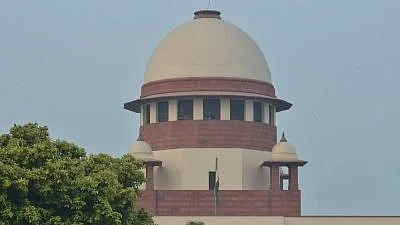The Supreme Court on Friday, 26 August, said that the plea against freebies promised by political parties before elections needs to be heard by a three-judge bench in view of the complexity of the issue.
A bench headed by Chief Justice NV Ramana said it was argued before it that the 2013 judgment delivered by a two-judge bench of the apex court in the matter of S Subramaniam Balaji vs The Government of Tamil Nadu and others required reconsideration.
"Looking into the complexities of the issues involved and the prayer to overrule the judgment rendered by a two-judge bench of this court in Subramaniam Balaji, we direct listing of the set of petitions before a three-judge bench after obtaining the orders from the Chief Justice of India," Bar and Bench reported, quoting the bench.
"Freebies may create a situation where state is pushed towards immient bankruptcy and such freebies are used to increase popularity of the party and deprives state to give genuine measures. In an electoral democracy electorate has the true power," the bench observed.
The order was delivered by Chief Justice of India NV Ramana on his last day. The order was livestreamed in a historic first to mark outgoing CJI's last day.
The public interest litigation (PIL) filed by BJP leader Ashwini Upadhyay has sought directions to the central government and the Election Commission of India (ECI) to take steps to regulate poll manifestos of political parties and to parties accountable for promises made in such manifestos.
The plea by Upadhyay has opposed the practice of political parties giving/promising freebies to voters.
Up until now, various political parties and leaders opposed the plea. In fact, the Aam Aadmi Party stated the plea by Upadhyay is a "political interest litigation."
Madhya Pradesh Congress leader Jaya Thakur told the Supreme Court that freebies in elections, such as framing schemes and providing subsidies, are the responsibility of ruling parties to help the weaker sections of society.
The petitioner had argued that political parties make promises during elections, without any assessment on financial implication on state economy, merely to attract vote bank. Thus, tax-payers' money is used by political parties to remain in power and this adversely affects free and fair election.
Why Has The Issue Emerged As A Flashpoint?
The freebie case has emerged as a latest flashpoint between the ruling BJP and other opposition parties.
The Centre has warned that indiscriminate doles like free electricity adversely affect the country’s economy. The opposition parties, however, say these are welfare decisions needed to help the weaker sections.
In 2013, a two-judge bench said promises of free gifts by political parties couldn't be called a bribe. Items and schemes given by the government for the betterment of the lives of the citizens were, in fact, in line with the Directive Principles of State Policy, the bench said.
What Does The 2013 Judgment State?
It also ruled that the court couldn't lay down the guidelines on allowing or disallowing promises made by political parties ahead of the polls.
The freebies issue, which has triggered a political storm, was termed as a "complex" and "important issue for the welfare of the country" by CJI NV Ramana.
(With inputs from Bar and Bench and Live Law. )
(At The Quint, we question everything. Play an active role in shaping our journalism by becoming a member today.)
